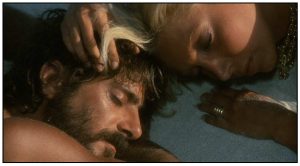 Sundance Institute’s Board of Trustees has announced that Boulder, Colorado, will become the Festival’s home beginning in 2027.
Sundance Institute’s Board of Trustees has announced that Boulder, Colorado, will become the Festival’s home beginning in 2027.
“This decision was informed by a detailed evaluation of the key components essential to creating our Festival. During the process, it became clear that Boulder is the ideal location in which to build our Festival’s future, marking a key strategic step in its natural evolution,” said Ebs Burnough, Sundance Institute Board Chair. “We have a profound appreciation for the finalist cities and their communities — including Boulder, Colorado, Cincinnati, Ohio, and Salt Lake City, Utah — who presented overwhelmingly strong proposals and dedicated their time, passion, and commitment every step of the way. We have deep respect and gratitude to these communities for their hard work and partnership throughout the past year. Additionally, we sincerely value the steadfast support from our staff and board as we have ventured on this exploration together.”
The Sundance Film Festival is the largest artist program of the nonprofit Sundance Institute. Its Artist Programs cultivate a vibrant ecosystem, supporting artists and connecting their work with audiences. The Festival stands as the pre-eminent gathering of original storytellers and audiences seeking new voices, fresh perspectives, and a celebration of independent film and storytelling.
 “The Sundance Film Festival is a catalyst for innovation, creative expression, and the discovery of groundbreaking independent films that inspire and shape the future of storytelling. This process provided the opportunity to imagine how we design the Festival while staying true to our programming and mission. We extend our appreciation to the staff, artists, partners, volunteers, and audiences who have and continue to support that mission,” said Amanda Kelso, Sundance Institute Acting CEO. “Boulder is an art town, tech town, mountain town, and college town. It is a place where the Festival can build and flourish. This is the beginning of a bold, new journey as we invite everyone to be part of our community and to be entertained and inspired. We can’t imagine a better fit than Boulder.”
“The Sundance Film Festival is a catalyst for innovation, creative expression, and the discovery of groundbreaking independent films that inspire and shape the future of storytelling. This process provided the opportunity to imagine how we design the Festival while staying true to our programming and mission. We extend our appreciation to the staff, artists, partners, volunteers, and audiences who have and continue to support that mission,” said Amanda Kelso, Sundance Institute Acting CEO. “Boulder is an art town, tech town, mountain town, and college town. It is a place where the Festival can build and flourish. This is the beginning of a bold, new journey as we invite everyone to be part of our community and to be entertained and inspired. We can’t imagine a better fit than Boulder.”









